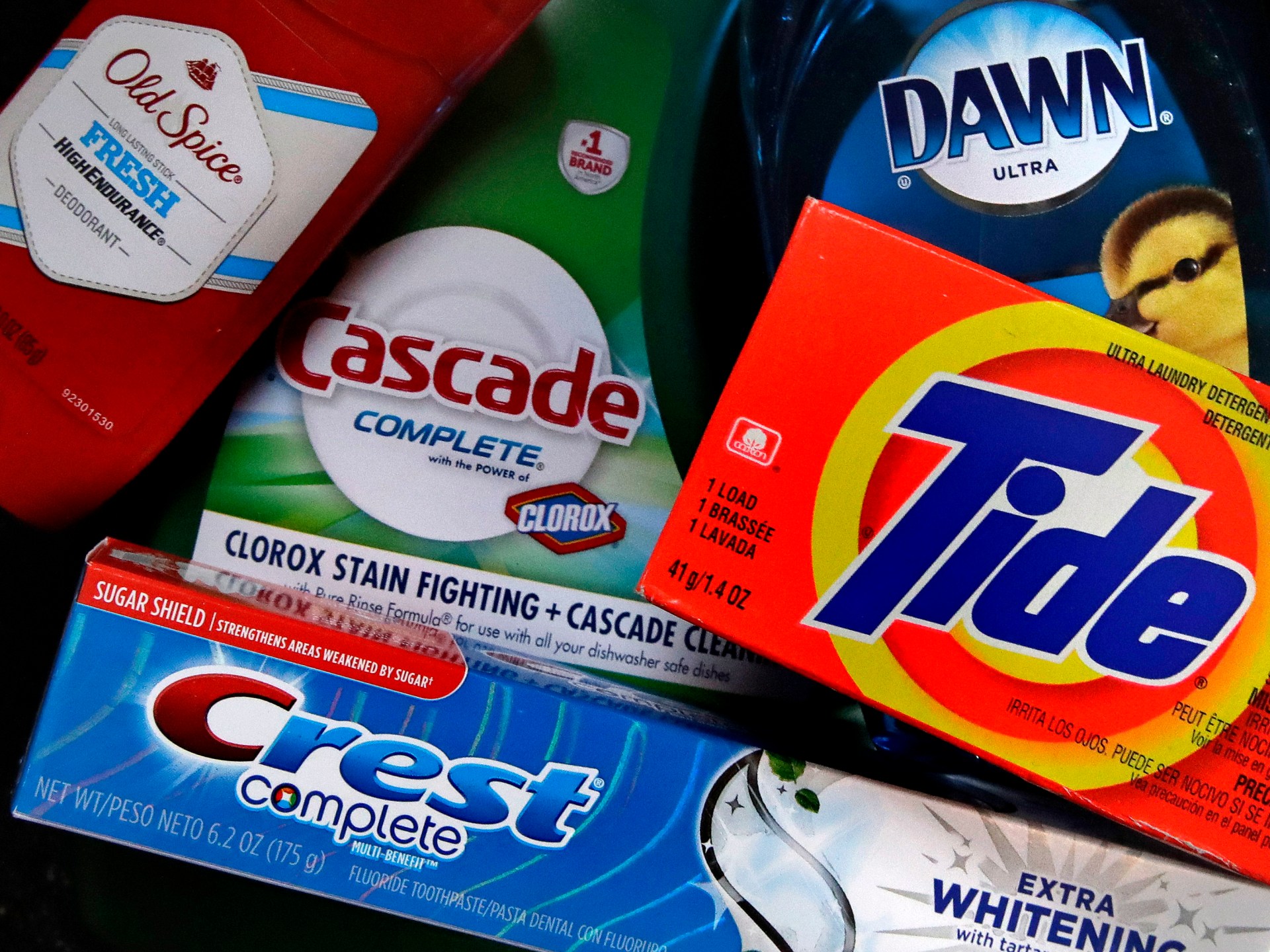The world’s largest consumer goods maker said it will have to raise prices on a quarter of its products starting in August.
Procter & Gamble has said it will need to raise prices on a quarter of the goods it sells in the United States starting this month in order to mitigate costs it has faced because of the tariffs imposed by US President Donald Trump.
On Tuesday, in conjunction with its earnings report, the world’s largest consumer goods maker named Shailesh Jejurikar as its new chief executive officer as the company navigates tariff-driven uncertainty weighing on the sector.
The price hikes have been communicated to retailers such as Walmart and Target and are in the mid-single digits across categories, a spokesperson said, and will be seen on shelves starting in August.
In May, Walmart also announced that it would need to raise prices on goods sold at the big box retailer because of the economic impact of tariffs.
P&G topped fourth-quarter estimates for its earnings report. The Cincinnati, Ohio-based firm reported revenue of $20.89bn for the quarter. Organic sales grew about 2 percent in fiscal 2025, driven by P&G’s portfolio of branded pantry staples, as well as higher pricing, particularly for fresher products. But that comes as growth is expected to slow.
Growth stalls
P&G expects fiscal 2026 annual net sales growth of between 1 percent and 5 percent, largely below estimates of a 3.09 percent growth.
Market growth slowed from where it was at the start of the year in both the US and Europe, and volatile macroeconomic, geopolitical and consumer dynamics were resulting in headwinds that were not anticipated at the start of the year, CFO Andre Schulten said during a call with journalists.
“The consumer clearly is more selective in terms of shopping behaviour in our categories, and we see a desire to find value either by going into larger pack sizes in club channel or online or big box retailers or by lowering the cash outlay,” Schulten said.
The comments from the company reinforce how consumers, particularly in the lower-income category, are seeking value as they look to stretch their household budgets. Packaged food maker Nestle said last week that consumer spending in North America remained weak.
“Given the immense pressure put on US consumers in particular, the organic growth is a very good sign that long-term earnings projections should hold up,” said Brian Mulberry, portfolio manager at Zacks Investment Management.
P&G, which makes household basics spanning from Bounty paper towels to Metamucil fibre supplements, estimated tariffs will increase its costs by about $1bn before tax for fiscal 2026. That compares with projections of between $1bn and $1.5bn made in April.
The company rolled out a restructuring effort in June to exit some brands and cut about 7,000 jobs over the next two years to increase productivity. Prices rose about 1 percent in the fourth quarter, while volumes were flat.
P&G expects fiscal 2026 core net earnings per share growth in the range of $6.83 and $7.09, compared with estimates of $6.99, according to estimates compiled by LSEG.
On Wall Street, the company’s stock over the last five days is down 0.5 percent, down 1.1 percent for the month and since the beginning of the year, it has tumbled 5.15 percent.
